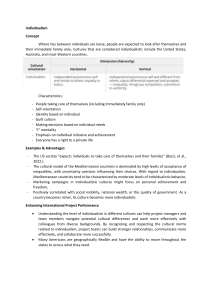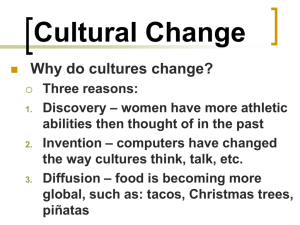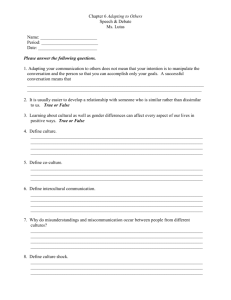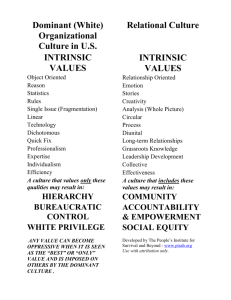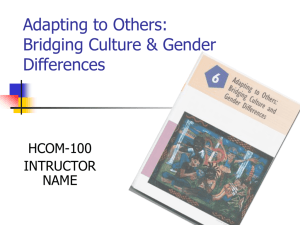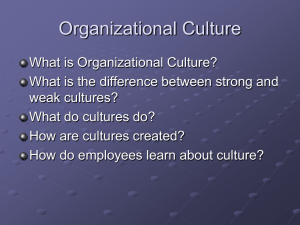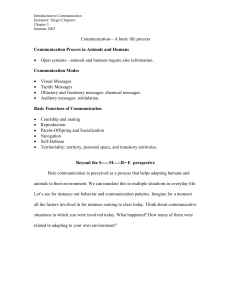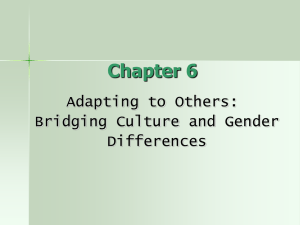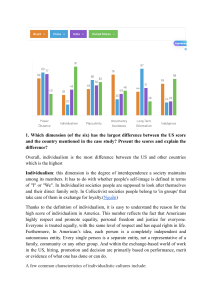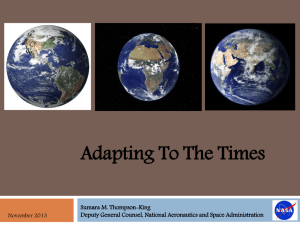Communication & Culture: Adapting to Social Communities
advertisement
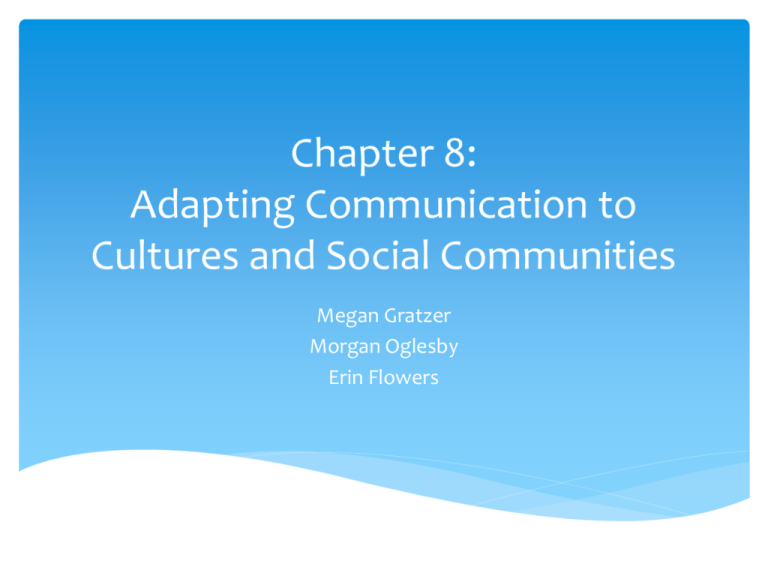
Chapter 8: Adapting Communication to Cultures and Social Communities Megan Gratzer Morgan Oglesby Erin Flowers Discussion Questions Is it more important for society to be ordered or to provide personal freedom to its members? Discussion Questions Does winning a medal or honor reflect more on the receiving individual or the person’s family? Discussion Questions What are some key characteristics of our society? Culture Definition: A way of life- a system of ideas, values, customs, and language that is passed from one generation to the next It’s a part of everything we do, feel, and believe Interconnected parts affect whole No change is isolated from overall system How Communication Relates to Culture We learn culture through communication Communication expresses, sustains, and alters culture Shapes how you communicate We acquire attitude as we interact with others, then reflect cultural teachings in the way we communicate Learning Culture Begins at Birth Learn both Verbal & Nonverbal Exposed to Mass Communication to learn Language We both consciously and unconsciously internalize our culture People from different cultures communicate differently http://www.youtube.com/watch?v=C-c_9yIbIx0 Individualism in Culture We can distinguish cultures by level of individualism Communication reflects, expresses individualistic or collective values 2 types of Societies individualistic – Low-context communication Collective- High-context communication Social Groups Everyone belongs multiple social groups and minimum of one culture Each identification we hold affects how we communicate Most Societies have dominant mainstream way of life Social Community: group of people who live in dominant culture, but belong to different social groups Standpoint Theory Effects of Communication on Culture Communication sustains culture, perpetuates values Communication is a source of cultural change http://www.youtube.com/watch?v=NbMJ1JFMMSM Adapting Communication to Diversity of Culture Engage in Person-Centered Communication Respect others feelings and Ideas Resist Ethnocentric Bias Recognize adapting to cultural diversity is a process Resistance – rejection of beliefs Assimilation – give up ways, adapt to dominant culture Tolerance – acceptance of differences Understanding – No cultural teachings are best or right Respect – No longer judge, respect Participation – Incorporate values and practices Class Activity http://www.factmonster.com/quizzes/countri es/1.html PLEASE NOTE: Chapter summarized from information found in: Wood, Julia T. (2014). Communication Mosaics: An Introduction to the Field of Communication. 7th Edition. Boston, MA: Wadsworth. These student lecture notes provide a brief summary of Wood’s discussion on verbal communication (chapter 4) while providing additional commentary and examples. The information in this slideshow is based on the work (content and organization) of Wood (2014).
